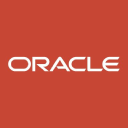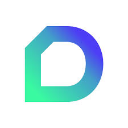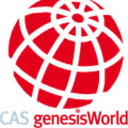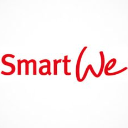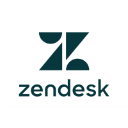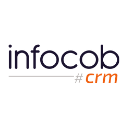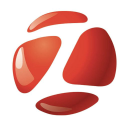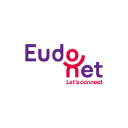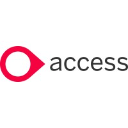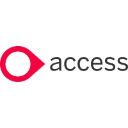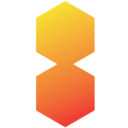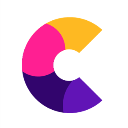Customer relationship management software: purchase guide
Customer Relationship Management (CRM) has gone through a real revolution in recent years. Gone are the mountains of Excel spreadsheets and scattered processes: specialized CRM software now allows you to centralize, automate, and optimize interactions with your professional contacts, clients, and prospects in an efficient and strategic way.
But how can you choose the ideal tool for your organization? This guide will help you in your selection, with:
✅ A comparison of the best solutions in 2025
✅ An analysis of key features you shouldn't miss
✅ A review of market trends
✅ Practical tips for a successful implementation
And to go even further, a comprehensive FAQ to answer all your questions.
1. How to choose the right CRM software?
The right CRM is one that adds value to sales, marketing, and management teams. More than just a database, it should optimize your sales processes and enhance the customer experience. Here are the key criteria to analyze before making your choice.
📌 Define your selection criteria
🔹 User-friendliness and accessibility
A smooth and intuitive tool promotes adoption by all employees. Poor usability can derail the project and demotivate teams.
🔹 Customization
Every company has its own needs (pipeline, fields, forms, automations...). Make sure the CRM can adapt its models and workflows to your reality and handle varied prospecting and follow-up scenarios.
🔹 Integration with your existing tools
The CRM should easily connect to your ERP, Microsoft 365, or Google Workspace, and your key applications (billing, marketing automation, customer support...) to avoid double entry and ensure data consistency across the company.
🔹 Cost and associated services
Analyze the pricing models: monthly or annual subscriptions, per-user fees, etc. Also check customer support quality and available training. Professional support can speed up implementation and optimize return on investment.
🆚 Dedicated CRM or feature within ERP/HRIS?
You have several options:
💡 Specialized software
- Primarily focused on sales and customer relationship management.
- Offer advanced features: multichannel sales, predictive analytics, marketing automation, etc.
- Can offer an optimized user experience and precise sales tracking.
💡 Solutions integrated into an ERP or HRIS
- Provide a single tool for company management (accounting, HR, etc.).
- Ensure overall consistency, especially if the suite is already used across departments.
- Sometimes less flexible and less user-friendly than specialized CRM solutions.
🔹 The ideal choice in 2025? Opt for a specialized CRM that communicates with your other applications. This way, you benefit from an in-depth tool without losing data centralization via smooth integration.
The ultimate CRM software comparison for 2025!
| Software |
Advantages |
Free Version |
Pricing |
Target Company |
| Sellsy |
Comprehensive French CRM (sales, billing, marketing, accounting), intuitive interface, French support |
No |
From €35/user/month |
French-speaking SMEs |
| HubSpot CRM |
Rich free version (contacts, interactions), native integration with HubSpot Marketing Automation |
Yes |
Free, paid from €41/month |
Companies of all sizes |
| Zoho CRM |
Customizable interface, advanced automations, built-in AI, direct link to Zoho suite |
Yes |
From €14/user/month |
SMEs and large companies |
| Salesforce Sales Cloud |
High customization, third-party apps, advanced analytics |
No |
From €25/user/month |
Mid-size and large enterprises |
| Pipedrive |
Visual and intuitive pipeline, simple automations, multiple integrations (Slack, Gmail, etc.) |
No |
From €12/user/month |
SMEs looking to optimize prospecting |
| Microsoft Dynamics 365 Sales |
Native integration with Microsoft 365, predictive AI, advanced customization |
No |
From €54.80/user/month |
Companies already using Microsoft |
| noCRM.io |
Simplified interface, customizable pipeline, focus on prospecting and follow-up |
No |
From €12/user/month |
SMEs focused on prospecting |
| Eudonet CRM |
Sector-specific solutions (education, associations, public sector), advanced relationship management |
No |
From €40/user/month |
Organizations with specific needs |
| Dolibarr |
Open-source modular ERP/CRM, billing and inventory management, easy to install |
Yes |
Free (third-party hosting and modules extra) |
Small businesses/SMEs looking for open-source solutions |
Good to know: Some vendors offer free trial or freemium versions. Prices may vary depending on the number of users, activated modules, and level of support. Don’t hesitate to request a personalized quote for accurate assessment.
Main features of a CRM software
A good CRM is not just a contact database. It should be a real engine for your sales, marketing, and customer service strategies. Here’s what makes the difference in 2025:
📍 Contact mapping and precise segmentation
A modern CRM offers a 360° view of each contact: purchase history, interactions, preferences, follow-ups... It should also allow you to segment your database (company size, industry, order history...) to better target sales and marketing campaigns.
🔍 Automation and lead nurturing
No more manual mass follow-ups. The best CRMs include automation workflows (lead tracking, scoring, targeted emails, automatic reminders) and easy-to-read dashboards. Result: you convert more prospects into customers without increasing your workload.
🎯 Sales tools and forecasting
Pipeline, forecast, opportunity alerts... A CRM is primarily meant to facilitate sales. You can track every deal in real time, forecast monthly or quarterly results, and quickly adjust your strategy based on the data collected. A major asset to stay competitive.
🚀 Customer service and support management
A service-oriented CRM allows centralized tracking of complaints, inquiries, and support cases. It can be linked to a helpdesk platform (tickets, live chat, knowledge base...). This centralization improves customer satisfaction and identifies friction points to address first.
📊 Real-time analytics and reports
Which campaigns have the best ROI? Which salespeople exceed their targets? With a well-configured CRM, you get key metrics to fine-tune strategy. Modern solutions increasingly leverage AI and machine learning to suggest improvements or identify the hottest leads.
🔗 Integrations and connected ecosystems
Your CRM should connect to your other tools (accounting, e-commerce, advertising campaigns, etc.). This interoperability ensures a single source of truth and avoids redundant data entry. Connected suites let you go from a CRM contact to billing or ticket history in one click.
Who uses CRM software?
A CRM centralizes all client and prospect information. It interests multiple profiles within an organization:
👥 Sales teams: frontline users
They are the main users. They manage the pipeline, prioritize follow-ups, and track their sales goals daily. In a few clicks, they know which opportunities are close to closing or which leads need urgent attention.
📌 Managers: strategy and oversight
Sales managers, marketing directors, and CEOs use reports and dashboards to evaluate performance, allocate resources, and refine strategy. They can also support struggling salespeople and share best practices.
🎯 Marketing: segmentation and automation
By integrating with CRM, marketing can better target campaigns (emailing, webinars…), personalize messages, and measure direct sales impact. Modern CRMs often offer marketing automation modules or bridges (HubSpot, Salesforce, Zoho…).
🛠️ Support / Customer Service
Knowing the customer’s history, support can better handle cases and cross-reference feedback with other departments. This fosters cross-selling, up-selling, and long-term loyalty.
🏢 Leadership: 360° business overview
Executives track revenue trends, pipeline health, and overall customer satisfaction in real-time. They can quickly identify growth or efficiency opportunities.
Why is CRM software essential in 2025?
In 2025, customer data volume has exploded, and contacts happen through many channels (email, phone, chat, social media). Without a structured and automated CRM, you risk inefficiency and missed opportunities. That's why CRM is an essential lever in most industries.
🚀 More demanding customers
Customers expect fast responses, personalized offers, and flawless service. A CRM helps manage interaction histories, anticipate recurring requests, and proactively offer complementary solutions.
🔍 Anticipate and personalize
With accumulated data (past purchases, web navigation, support feedback…), CRM enables predictive approaches. You spot buying signals, disengagement, or dissatisfaction early, and act before customers turn to competitors.
🎯 Align marketing and sales
Marketing and sales must collaborate: generated leads, interest scores, nurturing... All centralized in the CRM. Native integrations allow hot leads to flow directly to sales, track campaign progress, and reduce prospect dropouts.
🎓 Better training and coaching teams
With CRM, managers quickly identify team strengths and weaknesses: who closes most sales? Who manages post-sale relations best? Targeted training sessions can be arranged to improve overall performance.
⏳ Automate to save time
CRM handles repetitive tasks and automatic follow-ups. No more forgotten tasks or manual updates. Data syncs in real-time, letting teams focus on what matters: sales, support, and customer satisfaction.
How to successfully implement a CRM?
Deploying a CRM software is not just about installation. It’s a transformation of your sales, marketing, and customer service processes. For successful adoption, here are the key steps.
📌 1. Analyze your needs and involve the right teams
Discuss with sales, marketing, and IT to clearly define needs (integration, lead volume, features...). The more involved they are, the more likely they are to adopt the tool.
- Which contact channels are priorities (phone, email, social networks…)?
- What goals: increase sales, better client follow-up, centralize data?
💡 Pro tip: Draft a comprehensive, user-approved specification.
🔍 2. Compare solutions and their support
Test several CRMs in real conditions (demos, trials). Consider:
✅ Ergonomics (dashboards, customization).
✅ Support (in your language? responsiveness…).
✅ Integrations (Google, Microsoft, marketing tools…).
✅ Total cost (licenses, maintenance, training).
💡 Pro tip: Check user reviews (forums, professional networks) and compare offers to avoid surprises.
🏗️ 3. Set up and prepare data migration
Before launching:
📆 Plan the phases (setup, tests, history migration, training).
👥 Appoint a CRM project manager (often a digital or sales manager).
📂 Import data: clean duplicates or inaccuracies for a reliable base.
💡 Pro tip: Run a pilot test with a small team before full deployment.
